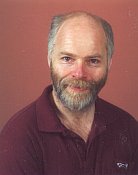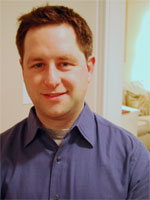SARA 2009: The Eighth Symposium on Abstraction, Reformulation and Approximation
Speaker Profile
 Dr. Michael Genesereth |
Talk Title: Reformulation in General Game Playing About the Speaker: Michael Genesereth is an associate professor in the Computer Science Department at Stanford University. He received his Sc.B. in Physics from M.I.T. and his Ph.D. in Applied Mathematics from Harvard University. Genesereth is most known for his work on Computational Logic and applications of that work in Enterprise Management and Electronic Commerce. He is one of the founders of Teknowledge, the premier company commercializing Artificial Intelligence; he is a co-founder of CommerceNet, the premier organization for electronic commerce on the Internet; and he is a founder of Mergent Systems, an early vendor of technology for integrated catalogs on the World-Wide Web. (Mergent was sold to Commerce One in 2000, which in turn was sold to Perfect Commerce in 2006.) Genesereth is the current director of the Logic Group at Stanford and research director of CodeX (the Stanford Center for Computers and Law). |
 Dr. Robert Holte |
Talk Title: Abstraction and Search About the Speaker: Dr. Robert Holte is a professor in the Computing Science Department and Vice Dean of the Faculty of Science at the University of Alberta. He is a well-known member of the international machine learning research community, former editor-in-chief of a leading international journal in this field ("Machine Learning"), and past director of the Alberta Ingenuity Centre for Machine Learning (AICML). His main scientific contributions are his seminal works on the performance of very simple classification rules, and a technique ("cost curves") for cost-sensitive evaluation of classifiers. In addition to machine learning he undertakes research in single-agent search: in particular, the use of automatic abstraction techniques to speed up search. He has over 75 scientific papers to his credit, covering both pure and applied research, has served on the steering committee or program committee of numerous major international AI conferences, and is one of the founders of the SARA symposia. |
 Jeff Orkin |
Talk Title: Abstractions in AI for Games The past 10 years have seen significant advances in the state of AI for games. Non-Player Characters (NPCs) have evolved from simplistic, hard-coded entities into autonomous agents, aware of their environment, capable of planning and adapting behavior in real-time. Each step of this evolution has relied on formalizing abstractions, working from the outside in -- from abstractions of the world outside the agent to abstractions of observations and mental processes inside the agent's mind. This talk will describe abstractions implemented in several generations of games (King's Quest: Mask of Eternity, No One Lives Forever 2, and F.E.A.R.) for spatial reasoning, object affordances, observations, world state, goals, and plans. Moving beyond the current state of the art will require new abstractions to represent dialogue and common sense narratives, in order to realize NPCs who can collaborate and interact socially with human players. The talk will conclude by examining abstractions implemented in the first steps of new research focused on generating dialogue and behavior from data collected from over 12,000 human players. About the Speaker: Jeff Orkin is a PhD student in Professor Deb Roy's Cognitive Machines Group at the MIT Media Lab. Jeff's research focuses on Artificial Intelligence for characters that learn to communicate and collaborate by observing humans playing online multiplayer games. Prior to enrolling at the Media Lab, Jeff developed several generations of A.I. systems in the game industry. As a Senior Engineer at Monolith Productions, Jeff focused on goal-oriented autonomous character behavior and planning, while developing A.I. systems for the award winning titles No One Lives Forever 2 and F.E.A.R. Jeff is a Contributing Author and Section Editor of the A.I. Game Programming Wisdom book series, has presented at the Game Developer's Conference and AIIDE, and holds a Master's degree in Computer Science from the University of Washington and Bachelor's degree in Computer Science from Tufts University with a minor in Studio Art. |
